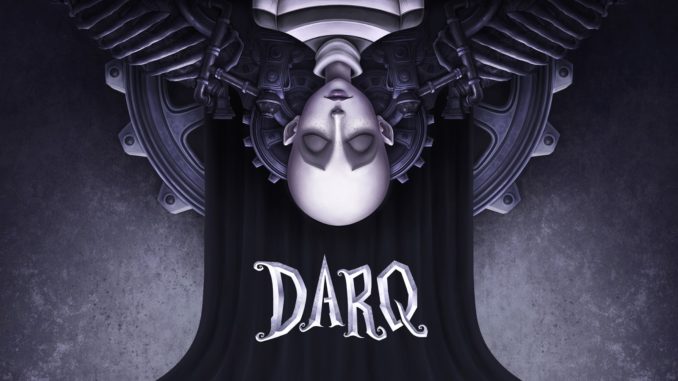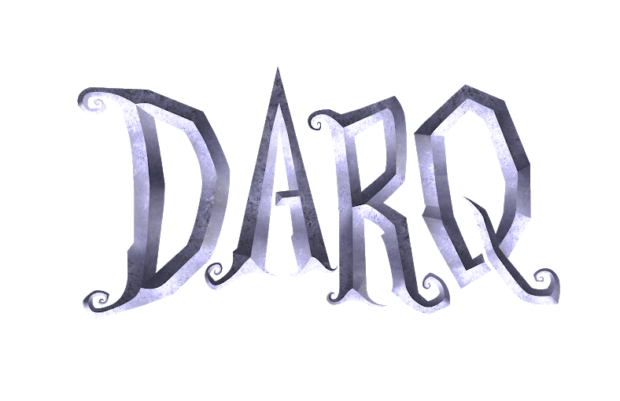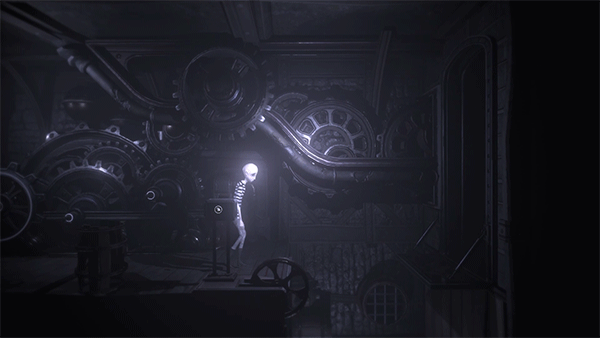

The darkest crevices of our subconscious have officially manifested in indie-game developer Wlad Marhulets’ DARQ.
Review Fix: Just to give the people a good idea, may you summarize DARQ for us?
Wlad: DARQ is an upcoming video game set in a lucid dream. It tells the story of a young boy named Lloyd, who realizes that he is inside of a dream. This discovery allows him to do things that are impossible in real life, like walking on walls, ceilings, and manipulating the environment in various ways. The dream quickly turns into a nightmare and all attempts to wake up end in failure. Using his newly discovered abilities Lloyd has to find a way out of the dream and discover its meaning.
Review Fix: Astral Projections and Lucid Dreams are commonly seen as freeform, celebrated and mostly controlled. Did the idea for an inescapable lucid nightmare seem good for a game concept, or does this go deeper to personal experience…?
Wlad: It’s both, actually. I had a number of interesting experiences in the past and they for sure inspired this game. Also, an abstract dream world in which anything can happen at any time seemed like the perfect setting for a game I had in mind. The game itself is not describing my personal experiences though – and I don’t assume any particular labels / terminology for what the players will see in the game. There’s no written / spoken word in DARQ, so the players are free to interpret and label the events shown in the game as they please. I would like the players to come up with their own ideas, terminology, theories, and labels for what they experience.
Review Fix: Why did Adam Schmidt and Bjorn Jacobsen contact you to create music and sound for this game?
Wlad: As a professional film composer, sound and music have been very important to me since I started working on this project. The opportunity to write music for this game was one of the reasons I started DARQ and taught myself game development. Having worked with Adam Schmidt in the past (who is a super talented sound engineer known for his work on Inception, The Dark Knight Rises), I asked him early on if he would like to mix my music, and he agreed. Bjorn Jacobsen, a sound designer who previously worked on Cyberpunk 2077 and Hitman games, contacted me after he had seen DARQ trailer. The game resonated with him and he was interested to work on it. The rest is history.

Review Fix: Which creative aspect of DARQ
Wlad: I’m proud of all the hard work that went into creating the game’s dream world, all the environments, the characters, and animation. I’m also very excited about some of the unique game mechanics & unusual puzzles featured in DARQ. Given the game’s setting, some of the puzzles have very abstract & unexpected solutions (dream logic). It’s fun to discover how the world interacts with the player in the most bizarre and surprising ways.
Review Fix: On November 29th, you published a story on
Wlad: Yes, there have been many challenges along the way. I didn’t know a thing about making games when I started. I had to learn coding, 3d modeling, texturing, and animation. All that was difficult and took a lot of time (and I’m still learning). I think the biggest challenge was to learn game design, or in other words: how do you build the world in such a way that it communicates with the player effectively, without confusion, and without hand-holding. How do you create a good puzzle? How do you teach the player how to play your game without a written tutorial? How do you structure a level? How do you balance the difficulty level? How do you make it fun? I did a lot of research about game design, although most of the answers to those problems had to be reinvented from scratch, given how unique and unusual game mechanics are in DARQ.

Review Fix: Does DARQ draw any inspiration from other games/movies/etc.? What inspired the puzzle-style gameplay?
Wlad: Yes, coming from the film industry, I was definitely inspired by some of my favorite film directors. Tim Burton, David Lynch, Guillermo del Toro to name a few. When it comes to video games, I would mention INSIDE by Playdead as the main source of inspiration, although it plays very differently from DARQ.
Review Fix: What kind of environments do we expect to visit? Are the ability to interact and manipulate these environments reflective of real astral experiences?
Wlad: When creating the word of DARQ, I wanted the player to feel a sense of surprise, like we often do in a dream. The game is split into a number of levels, each taking place in a different location. For example, one level takes place on a moving train. However, it’s not an ordinary train – we’re in a dream world after all. Eventually, while walking though the moving train, the player finds an opening in the wall that leads to a…cave. And we end up in a completely new location, which normally wouldn’t belong in a train level. There is a lot of surprises like this in the game.

Leave a Reply